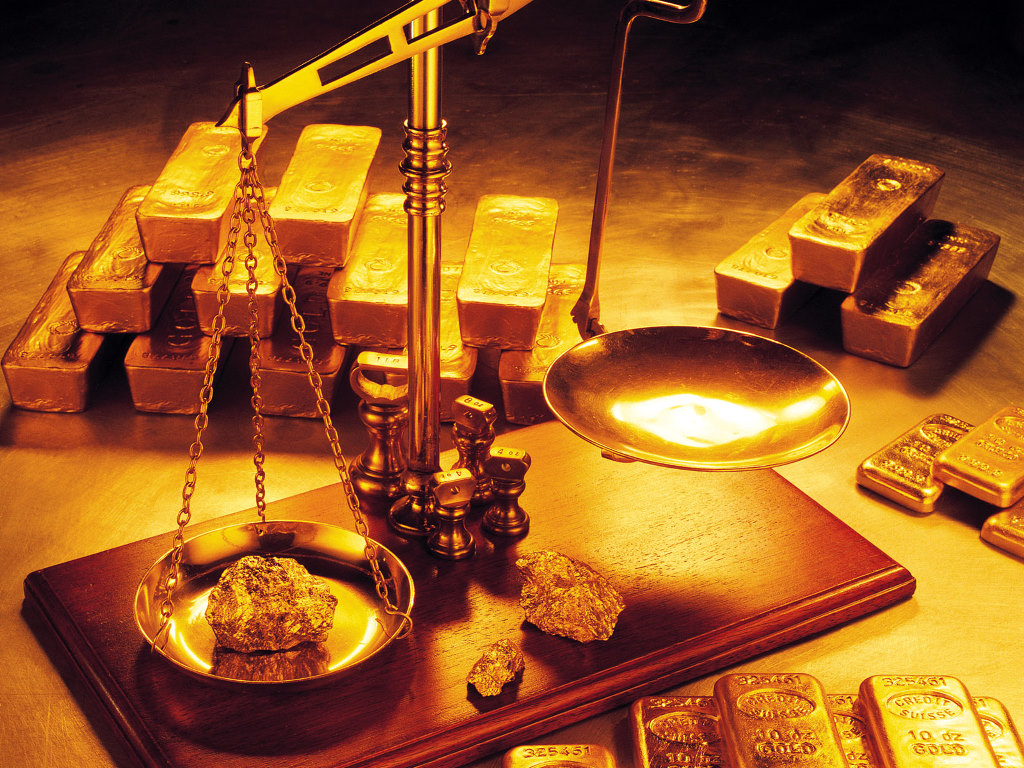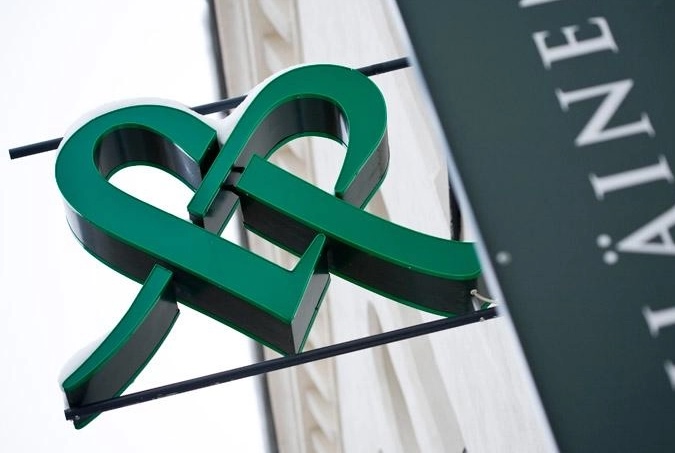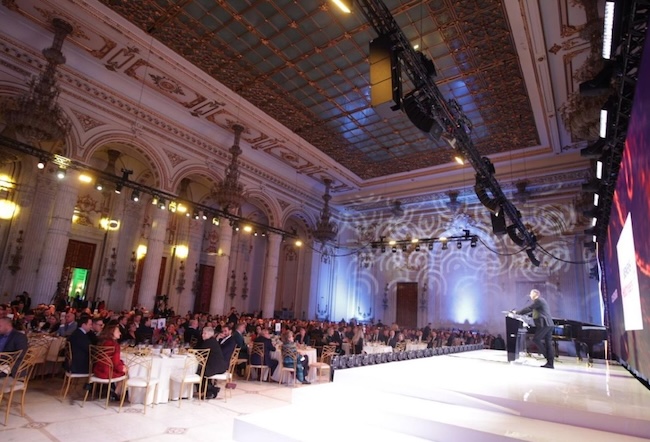Rosia Montana mining project: who are the (real) beneficiaries?

Rosia Montana mining project has seized the public attention becoming a hot spot about three weeks ago when the Romanian Government sent to the Parliament a draft law to approve the start of mining in the area. The law in question, if voted, would have enabled the State to enforce locals living in the targeted mining area to relocate. Thousands of people throughout Romania have started a protest against this project and eventually succeeded to make their voice heard loud enough so that politicians stepped back fearing valuable voters support in the next elections. As usual, a special committee was formed to analyze and handle the issue, nnd eventually to decide in favor or against the mining project.
Much has been written about who's right and who's not and it definitely won't stop now. But that's not the point in here. Putting apart any possible negative consequences on the environment or the employment issue in the Rosia Montana area, it's interesting to have a bird's eye view on the subject, but from a different perspective: who and what stands to gain from this deal? And I don't mean the $4 billion that Romania would benefit from once the gold mining starts.
The project Rosia Montana, an eighteen years saga from the first paper
Making a long story short, there are approximately 300 tones of gold and 1600 tones of silver to extract from Rosia Montana. The latest estimates show that Romania would obtain around EUR4 billion from this deal, as per the Minvest Deva's interest in RMGC. These are the most important decisions since 1995 until now and that have led to the current situation:
· On September 4, 1995 the Autonomous Copper Administration Deva (currently, Minvest Deva, a state company) concluded a cooperation agreement with a company, whose name is unknown, owed by Frank Timis, an Australian citizen of Romanian origin.
· On May 28, 1996, Frank Timis founded Gabriel Resources Limited (Gabriel Jersey), a British company. At the same time, Timis also established Gabriel Resources Ltd. based in Vancouver, Canada. The exact same day, Timis made a subscription to the Vancouver Stock Exchange announcing he found gold in Romania.
· On June 7, 1997 Euro Gold (currently, Rosia Montana Gold Corporation – RMGC), a joint venture, is founded by Gabriel Jersey (65% and a $357.000 initial capitalization), Minvest (33.8%) and three private minor shareholders under the gaze of Calin Popescu Tariceanu the Minister of Industry at that time. The RMGC's foundation was also supported by Mihai Ianas, President of National Agency of Mineral Resources (ANRM).
· 1999: Radu Berceanu, the Minister of Industry, issued the licenses for exploration and exploitation in Rosia Montana area for Minvest Deva.
· 1999 – 2001 During the government of Radu Vasile and then, Adrian Nastase, the Ministry of Industry was lead by Radu Berceanu, followed by Dan Ioan Popescu. Then the mining licenses had been transferred from Minvest Deva to RMGC.
· 2006 Under the government of Calin Popescu Tariceanu, the Ministry of Industry, then led by Codrut Seres stopped all mining, but RMGC preserved its licenses although expired.
During these years, Gabriel Resources increased the RMGC's capital a couple of times as well as its interest which is of 80% at this point. It has also reserved the possibility of a further increase up to 100%.
The mining project, beneficial to whom?
RMGC's side
Before focusing on RMGC's benefits, there's a need to mention Frank Timis, who established RMGC and to whom is due the mining project. Timis managed to subscribe Gabriel Resources to the Vancouver Stock Exchange and got rid of all his shares in 2003 for about $600 million.
Now, in case mining in Rosia Montana starts, RMGC would get over $10 billion upon selling all the gold and silver extracted. But that's not all. It seems that besides gold and silver, there are also gallium, germanium, chromium, vanadiumand some other chemical elements in Rosia Montana area, very valuable deposits estimated to around $40 billion, according to the reports published by the Romanian Academy. The mining project does not mention such deposits, so the question is: would that amount be split or it would be only Gabriel benefiting from these deposits?
On the other hand, even though the mining has been delayed ever since the beginning, Gabriel Resources benefited from that delay through stock subscription. This way, Gabriel Resources has made more than $750 million since 1996.
Despite the shares fell with almost 70% on September 9, when Romanian Prime Minister Victor Ponta announced that the draft law previously mentioned would be stopped from voting, by the end of the day the shares stabilized at half of the initial price. That means that there was an entity that acquired shares. The following question that comes in mind is whether there was one of Gabriel's shareholders who bought them or someone else who expects or knows the shares might explode at a certain point?
Romania's side
The gold mining would be beneficial for Romania, economically speaking. There would be about $4 billion that Romania would get. A quite enormous amount, yet less impressive when looking at the EUR18 billion Romania’s GDP lost in 2012 due to tax evasion.
The fact is that those $4 billion are based on last estimates, as initially there was mentioned a lower amount, around $2.3 billion. Therefore you might ask whether the first estimates were wrong or there is an interest in reporting a higher profit for Romania in order to eventually facilitate the starting of mining?
Since the Romanian politicians are far from being some saints and considering the events described above, we might suppose that some of those named there (i.e. Calin Popescu Tariceanu, Radu Berceanu, Dan Ioan Popescu etc.) may have something more to do with this project than the tasks related to their former positions. It’s only an assumption resulted from the decisions they made regarding this issue, decisions that somehow favored RMGC. However, any of the favorable decisions they've made regarding the Rosia Montana project couldn't have been effective without the approval from ANRM (the National Agency for Mineral Resources), led by Mihail Ianas.
Besides those, there are two other individuals, politicians as well, to whom the starting of gold mining seemed to be beneficial. They are senator Toni Grebla from USL (Social-Liberal Union) and senator Ion Ruset, PDL (Democratic-Liberal Party) who came with a proposal of modifying the mining law. The changes targeted the same aspects as the current draft law — relocating the individuals living in the area in the RMGC’s interest and advantage. The Senate adopted the said law, but the Government led by Emil Boc put a negative notice on it. Here comes the interesting thing: in 2010, the Government reconsidered its decision — the law would have been approved under some conditions concerning changes in the legislative initiative.
Furthermore, the area has been declared mono-industrial in 2006, so that RMGC’s mining project remained the single option for employment for those living there. That, thanks to the local authorities that basically forced the locals to embrace the project as their unique opportunity for a better living. And possibly for their better living, since they excluded any other options regarding the area development.
This is definitely a summary of a very complex issue and that is still not clear. Besides the estimates concerning the profit that both RMGC and Romania could get and the $600 million Frank Timis got from this deal the other aspects are nothing but assumptions. Assumptions resulted from a friendly approach Romanian authorities showed towards any step made by RMGC in order to be able to start gold mining.






